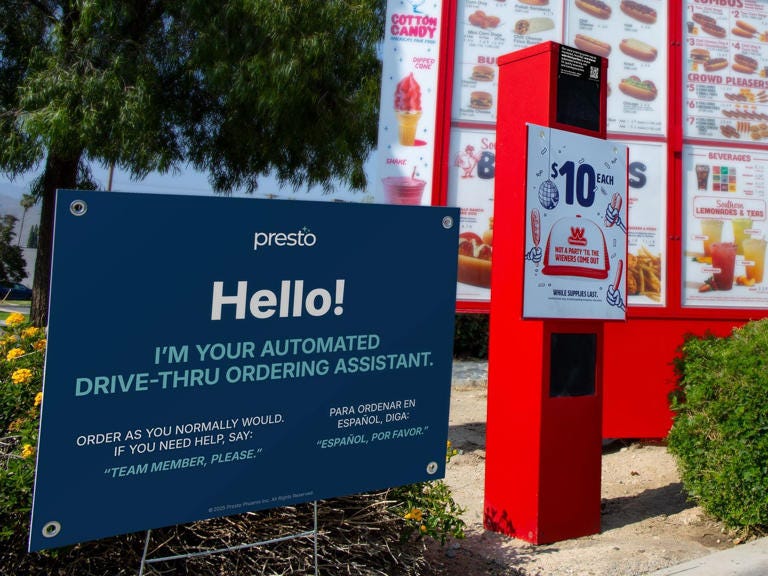Originally posted on a shiny new substack, I decided to roll all both of those articles over and just post them on here. A very small number of readers will have seen this before, but this article is REVISED with new news!
I do have a tag all ready for this content, though, as I always planned to write about it.
The tag is “Artistic Intelligence” and the the topic is the intersection of artificial intelligence with our lives and our economy. The conversation seems to be about AI, but it’s really about us: how do we manage resources, how do we think, how do we communicate and understand the world and our tasks. Above all: how do we live free in a world we all share. There’s no mic-drop answer to that question, it’s a series of balances and compromises.
Technology and AI will be at the center of this balancing act for the forseeable future.
So Let’s get on with it. Here’s a story:
Years ago I was in a drive-through, late at night. We were waiting for someone to talk to us through the box and I said to my girlfriend, “Pretty soon we won’t even be ordering from a person, it will be a robot, instead.” but then I thought “Well, robots made of flesh, or robots made of metal, what difference does it make?”
Now this was over 20 years ago so I was a little optimistic on the timeline, but here we are.
AI has arrived and it can do a lot of these robot jobs that many human beings depend upon.
But if you think AI is the enemy in this, you are missing the bigger picture. It’s dehumanizing to work a job that can be done by a robot, a job where you are rewarded for following procedures and punished for using your own discernment or logic or creativity.
The problem lies with an economy that manufactures reasons for people to do dehumanizing work, just for the right to access the resources they need to live.
I know the issue is complicated, but if we’re going to make the world a better place, we have to dispel the illusions that stand in the way. It’s not good and natural to do symbolic work, it’s a pathology. And if your job can be done by AI, then the work is symbolic. It’s an imaginary moral argument that says you have to expend effort to survive, even if that work can be done faster, better, and cheaper another way. That’s not the future you should be fighting for.
August 2025 Update:
I saw an article today about the new AI ordering system being rolled out by Wendy’s.
The article was actually about the company’s AI “guru” being poached by another company. But the guy had a quote that I think reinforces my point. (Even though I don’t entirely agree with him about what constitutes a monotonous job — but that’s a bigger question that I’ll save for later)
"So now you can go to that person and say, instead of doing that monotonous, repetitive, boring work, you can actually create the food and make orders and serve people with a smile," Gupta said. "And that's my hope for AI tech broadly, is that it enables all of humanity to do that, and serve the higher purpose of our lives."
Let me elaborate on symbolic labor. My own broader premise is that if a machine can do a particular job better and easier, then the work becomes a kind of moral theater where people are just proving that they deserve a share in resources because they made effort.
Anthropologist David Graeber called these roles “bullshit jobs”—work that persists not because humans do it best, but because our systems demand the appearance of effort. My term for this is symbolic work: labor humans perform mainly to satisfy a story about merit, not to create value. If AI can handle the procedure, our goal shouldn’t be to preserve symbolic roles—it should be to free humans for chosen difficulty: craft, care, invention, play.
We are throwing productivity away in order to preserve the scarcity illusion. We have to question what problem this solves (“laziness?”) and whether the cost is worth it? Might there be another way?




Great observation! I hate to admit it, but the AI ordering systems are often more efficient than the human. You get exactly what you ordered.